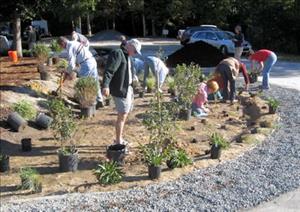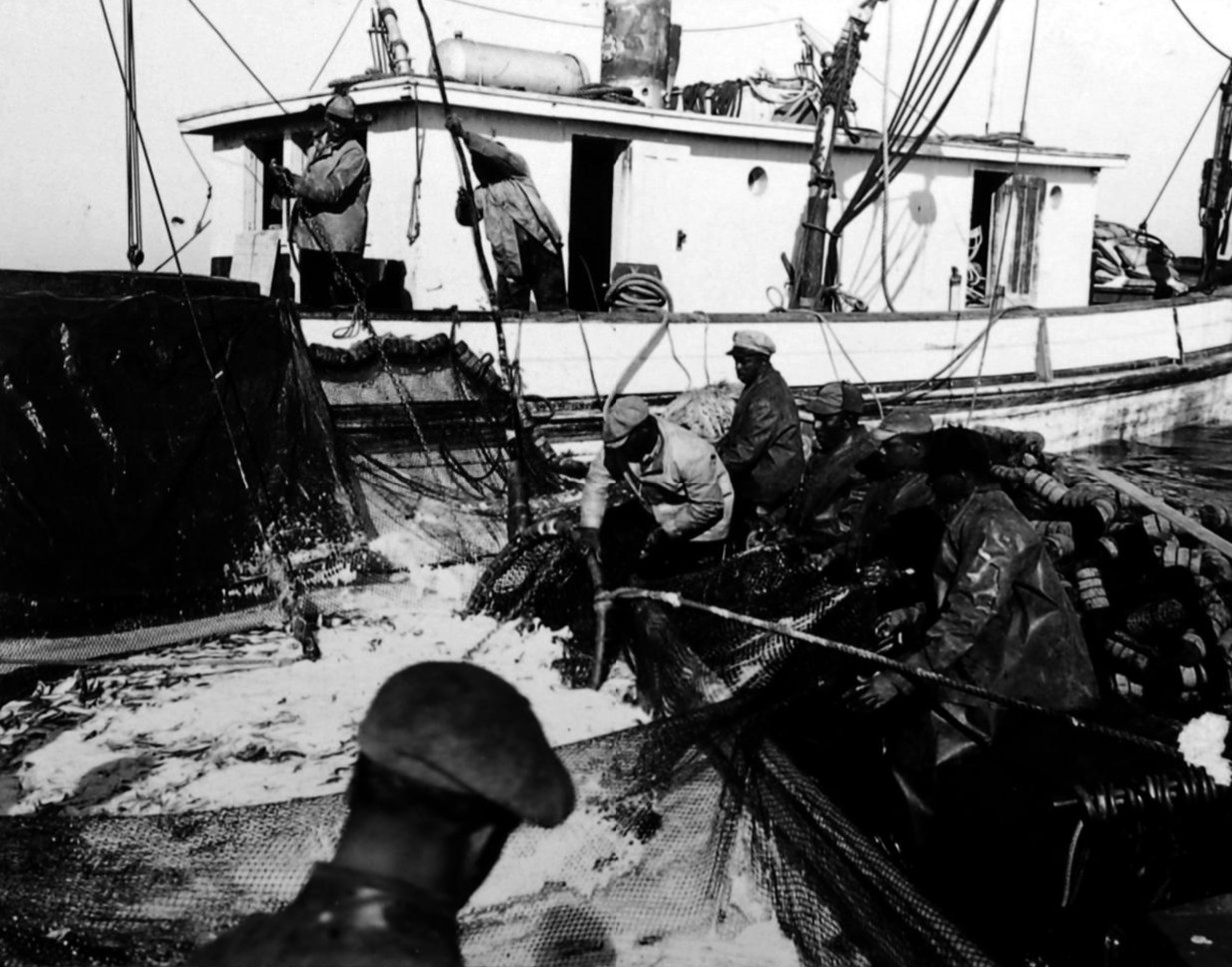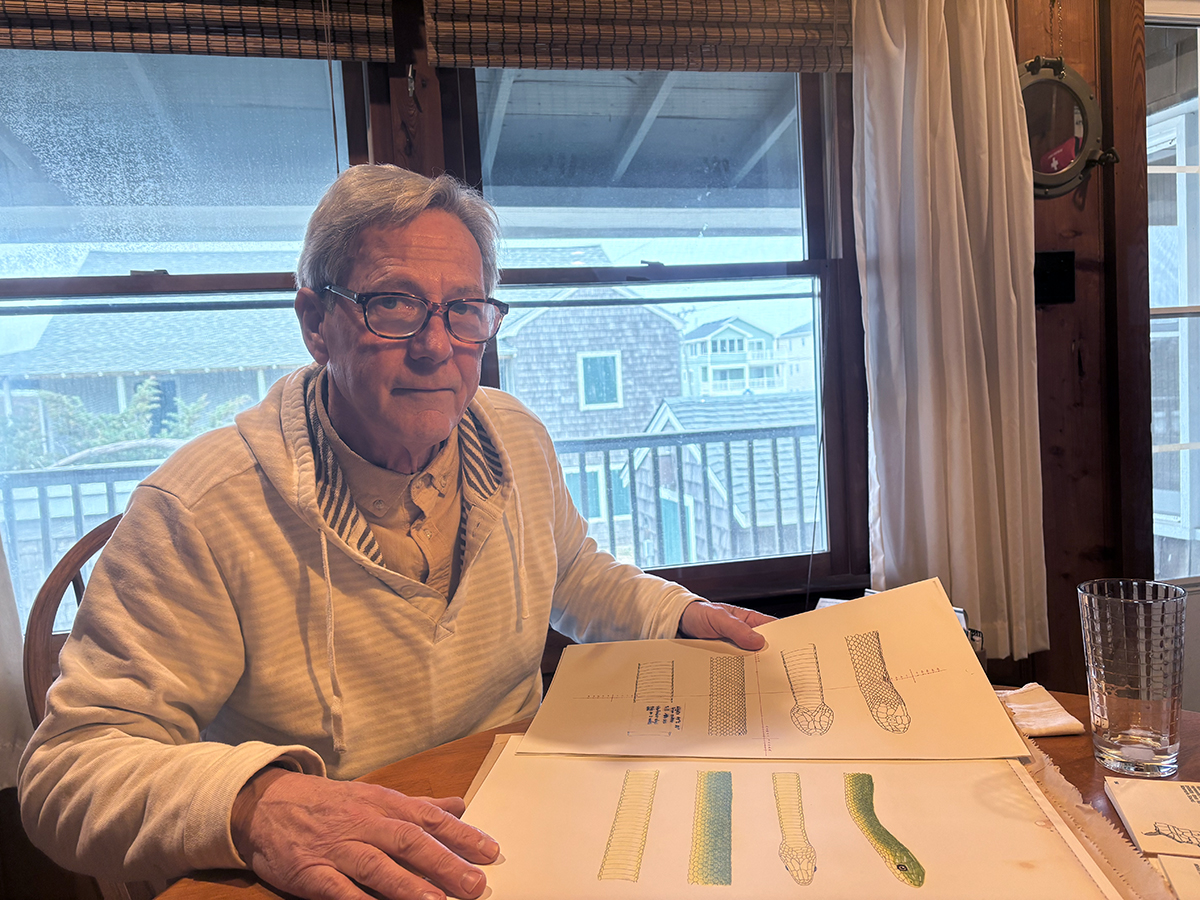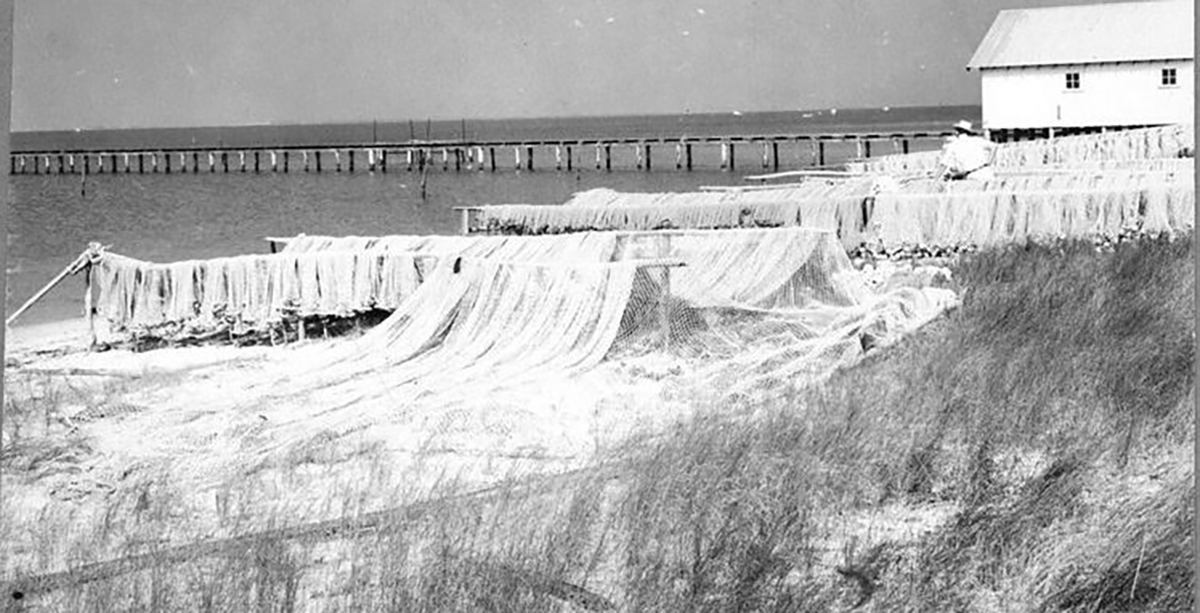Last of two parts
Supporter Spotlight
BOLIVIA – Steve Stone took a chance in 2006 and invited the “enemy” down to Brunswick County.
That’s what many on the Brunswick County Board of Commissioners thought of the N.C. Coastal Federation. That bunch of environmental radicals wanted to stop all development and turn everything back over to the ‘gators and woodpeckers.
Rapid growth in the county was polluting its rivers and streams. Stone, the county’s deputy manager, figured the federation would know something about pollution.
Supporter Spotlight
 Steve Stone |
“One of the things I remember saying to our board members privately was that I thought we had a lot more in common with the Coastal Federation then we had differences,” said Stone. “It seemed to me that both the commissioners and the Coastal Federation wanted the environment, the water quality, the things that were attracting people to Brunswick County; they both wanted those things to stay in place.”
Stone invited Todd Miller, the federation’s executive director, and Lauren Kolodij, its deputy director, to a meeting with county officials to discuss the concerns the federation had with South Brunswick Water and Sewer Authority, then a private company that the federation had sued.
“[The meeting] sort of opened the door to not only talking at each other but with each other,” said Miller. “[Stone] knows how to connect the dots between the people or interests that are involved in dealing with these issues.”
Stone listened to people. That impressed Kolodij. “He’s open to ideas. He’s very respectful of people. He cares about peoples’ views and he makes people realize that we all have more in common,” she said.
Stone walked out into the parking lot with Miller and Kolodij after the meeting and spent nearly an hour encouraging them to work more with the county and not just be adversaries.
To be in public service, Stone said, “You really need to be tolerant of people who have views that differ from your own.”
Shortly after their initial meeting, Miller contacted Stone about Brunswick County’s eligibility for a grant from the U.S. Environmental Protection Agency to fund a project to restore a watershed in the county.
“There were some people in the development community that had what I still believe to be an incorrect image of what the Coastal Federation stands for and an even more negative image of what United States EPA is there for,” Stone said. “The idea of having a federally funded grant operating in Brunswick County really created some concern on their part. I think some people even suggested to some of the board members that I didn’t need to be working here.”
 Stone worked hard to win the commissioners over, Kolodij remembered. EPA in 2007 awarded the grant for the Lockwoods Folly Watershed Project. Partners included the former enemy, the N.C. Coastal Federation. The goal was to develop strategies to maintain and restore water quality in the watershed. As the grant manager, Stone was directly involved in making sure the county lived up to its expectations.
Stone worked hard to win the commissioners over, Kolodij remembered. EPA in 2007 awarded the grant for the Lockwoods Folly Watershed Project. Partners included the former enemy, the N.C. Coastal Federation. The goal was to develop strategies to maintain and restore water quality in the watershed. As the grant manager, Stone was directly involved in making sure the county lived up to its expectations.
With more shellfish beds closing in the 153-square-mile watershed in the heart of Brunswick County, residents feared that the river was showing signs of deterioration.
Brunswick’s county commissioners appointed an eight-member Lockwoods Folly River Watershed Roundtable, a diverse group of stakeholders that meet monthly to develop strategies to maintain and restore the water quality. Stone was there for administrative support and to encourage everyone to stay involved and work together.
The grant, which ran through 2010, involved water quality testing for fecal coliform bacteria and total suspended solids. Trained volunteers did the bulk of the field work by taking samples and recording environmental conditions at the sampling sites. An engineering firm used the results to develop a computer model that identified bacteria sources and determined how the pollution is getting in the river.
The results were alarming. The state’s bacteria standard for safely consuming shellfish is 14 fecal coliform colonies per 100 milliliters of water, the test results showed an average of 350 to more than 1,000 colonies. They found that more than 55 percent of the river was closed permanently or temporarily to shellfishing because of high bacteria levels. That’s a three-fold increase since 1980.
Polluted runoff was the culprit, according to the study. It found that bacteria entering the river with each rain must be reduced as much as 84 percent if the river is to once again meet state water standards for shellfishing.
The grant also included developing methods to control stormwater for public education and involvement by the community and local officials for an overall strategy to address the stormwater issues in the river.
 Residents of Winding River Plantation along the Lockwoods Folly River build a rain garden in their neighborhood. Such LID measures were recommended by a study to reduce stormwater pollution. |
After the commissioners adopted the strategies, the county, the federation and others created a low-impact development, or LID, manual and stormwater calculation tool for developers to manage stormwater runoff from new development and redevelopment.
The restoration plan largely stressed the need to promote and implement LID so that as much stormwater as possible soaks into the ground where it falls. This meant that 94 percent of developed land would need to be targeted for stormwater retrofits. LID not only leads to improved water quality but in many cases is less expensive for developers than conventional pipes and ponds.
“You talk about a true win-win,” said Stone.
His work with the federation has been on-going. Since the project, Brunswick County and the federation have received more grants to work on LID programs and projects together.
“[The grant] started the era of much cooperation between the Coastal Federation and local government in southeastern North Carolina,” said Miller.
Brunswick County was the first local government that the federation worked with on LID, a collaboration that has since been showcased at national and international LID conferences.
“Steve is the one that kind of made it all happen,” said Kolodij. “He steers the ship from under the deck.”







